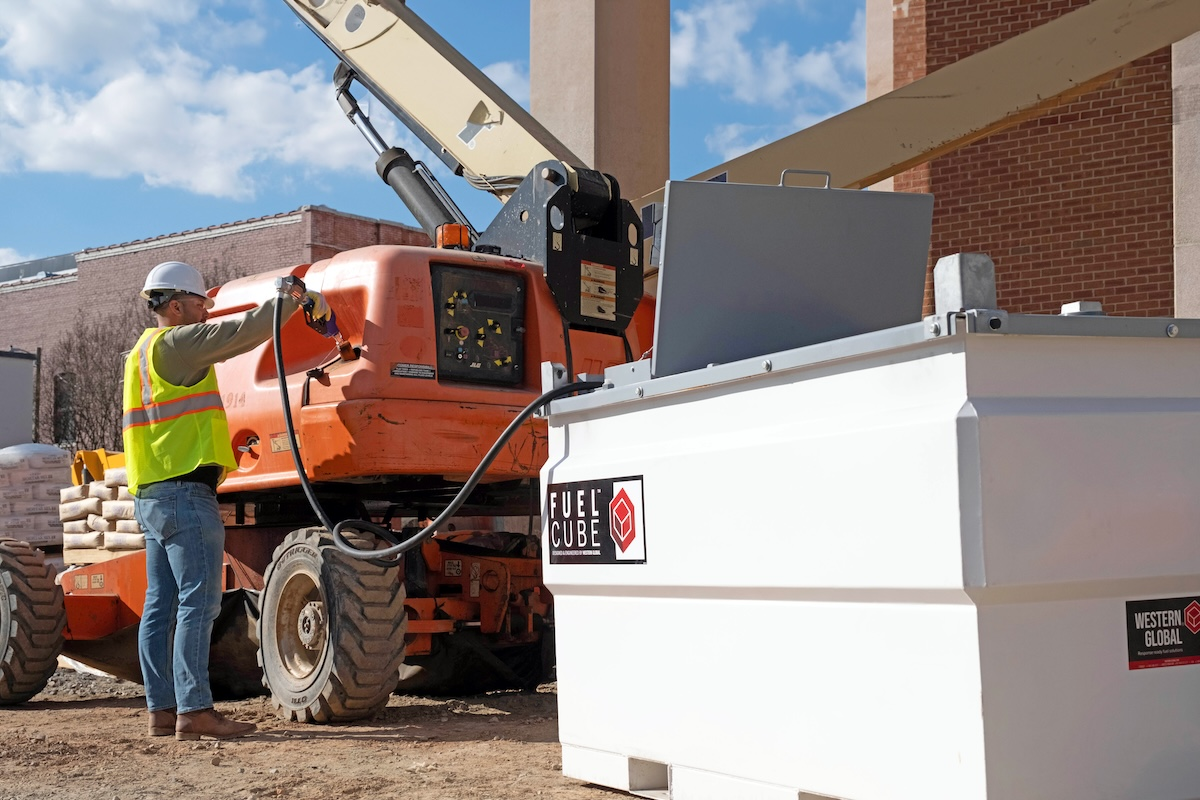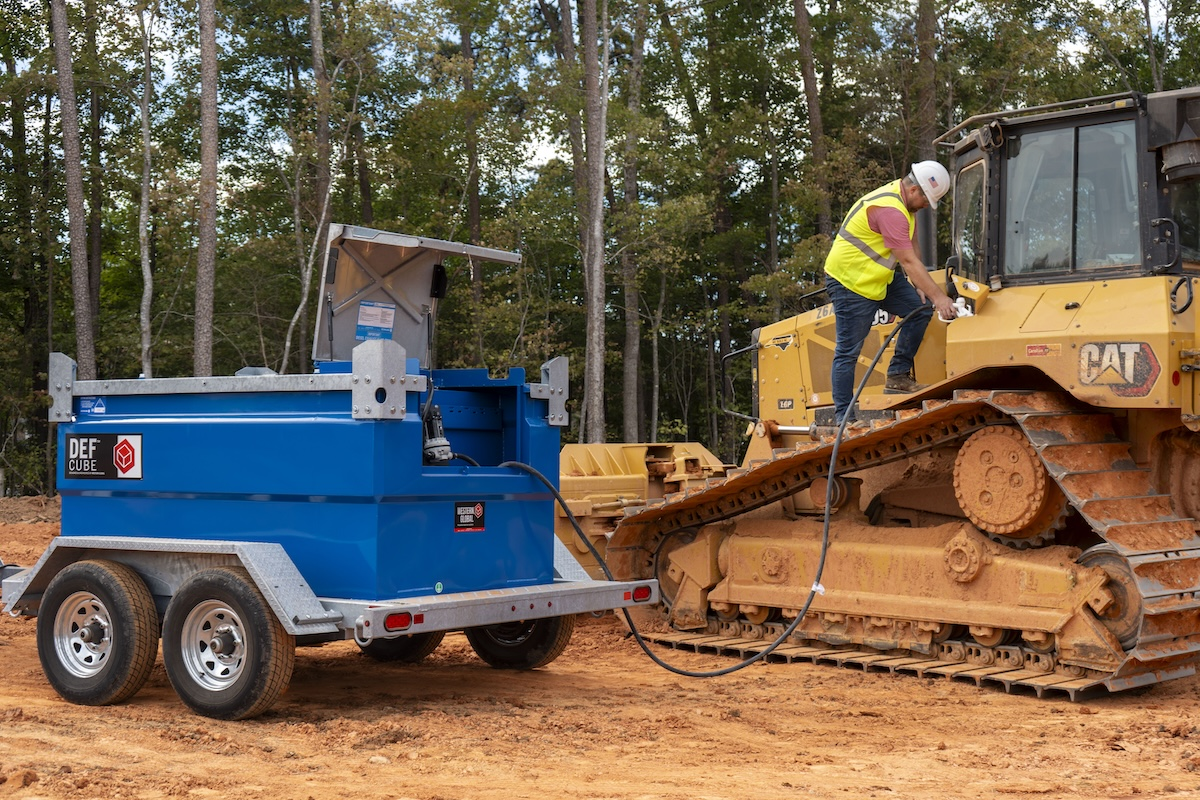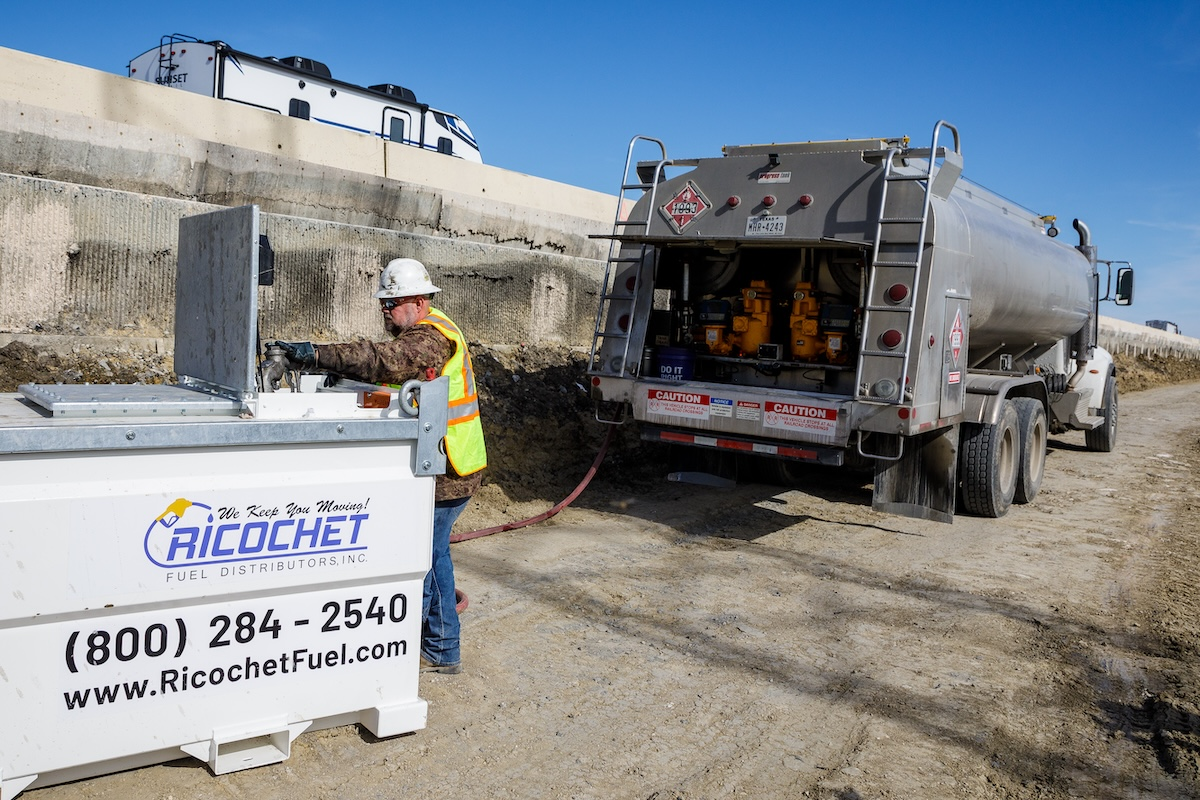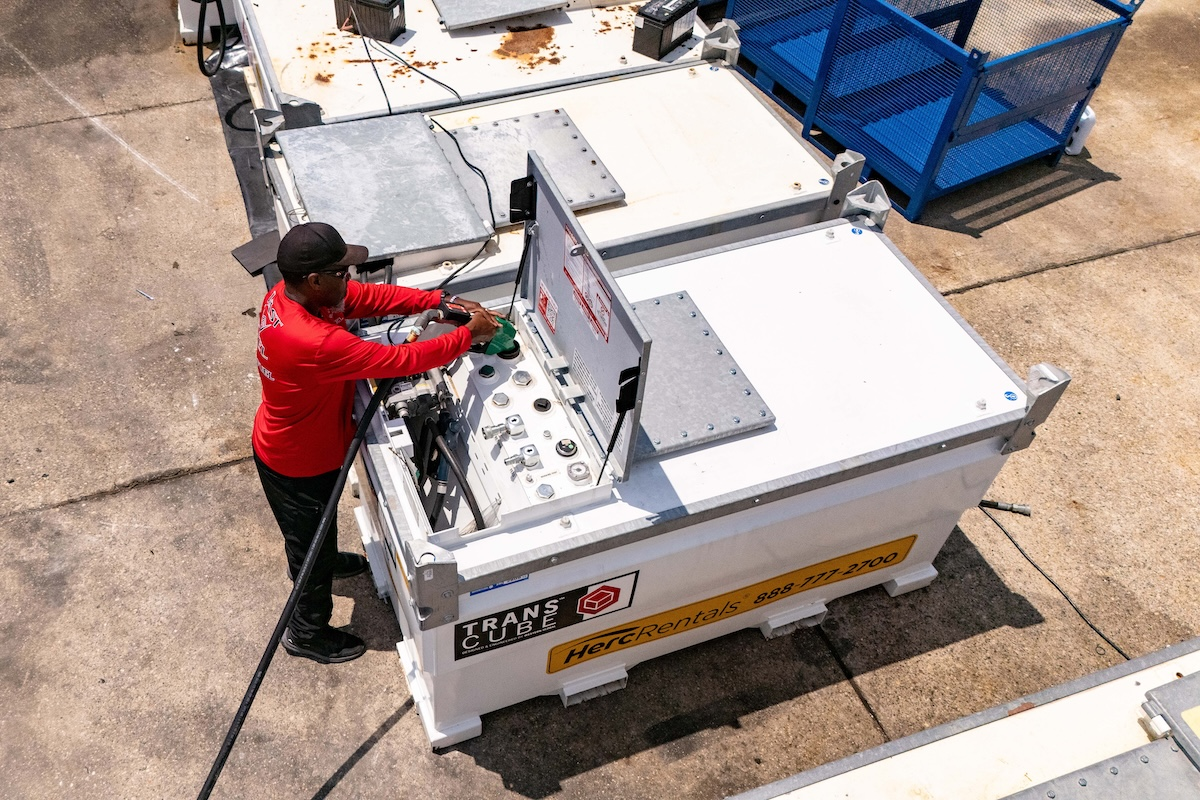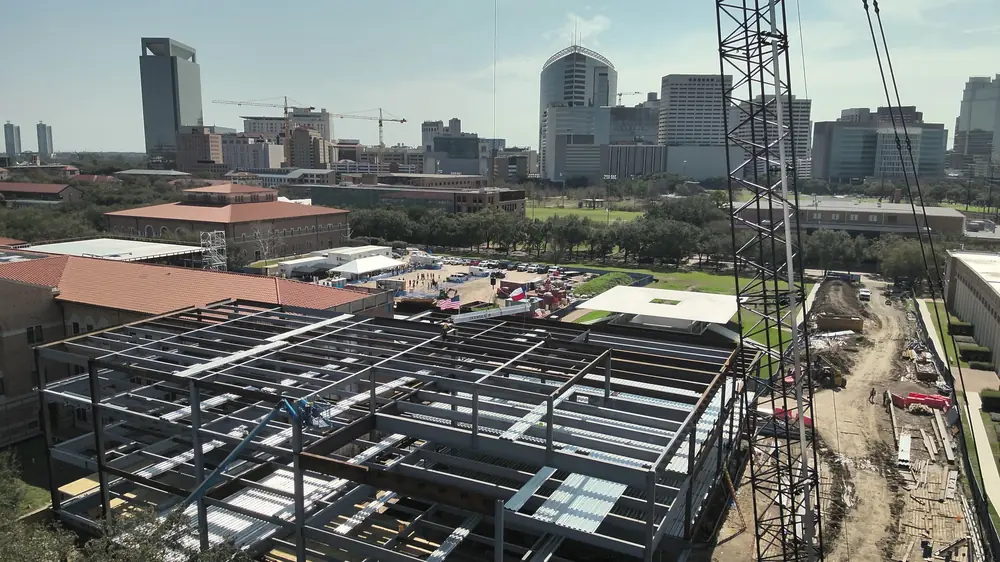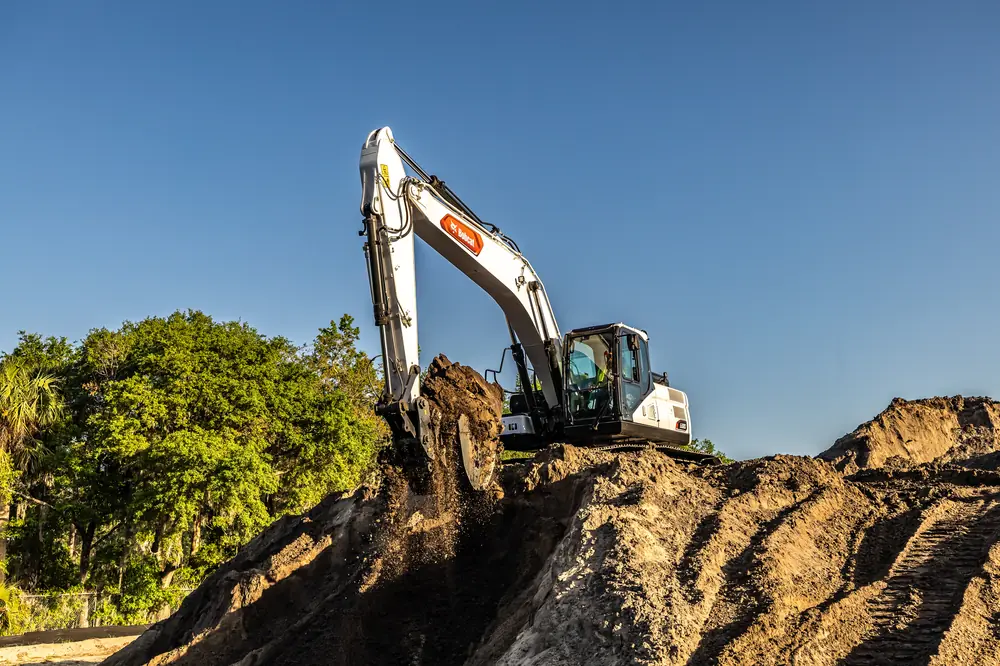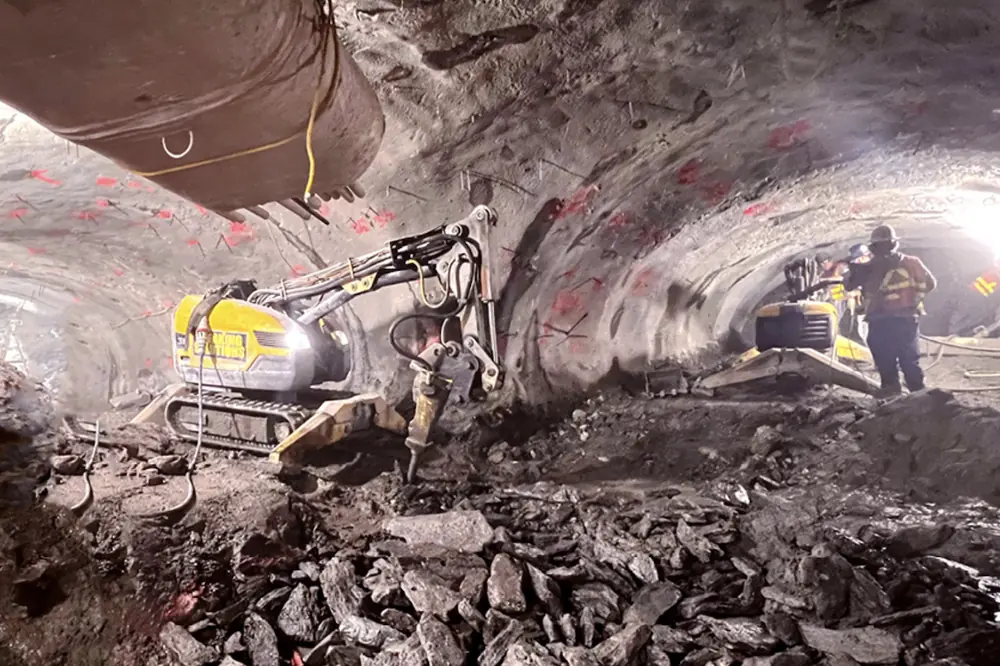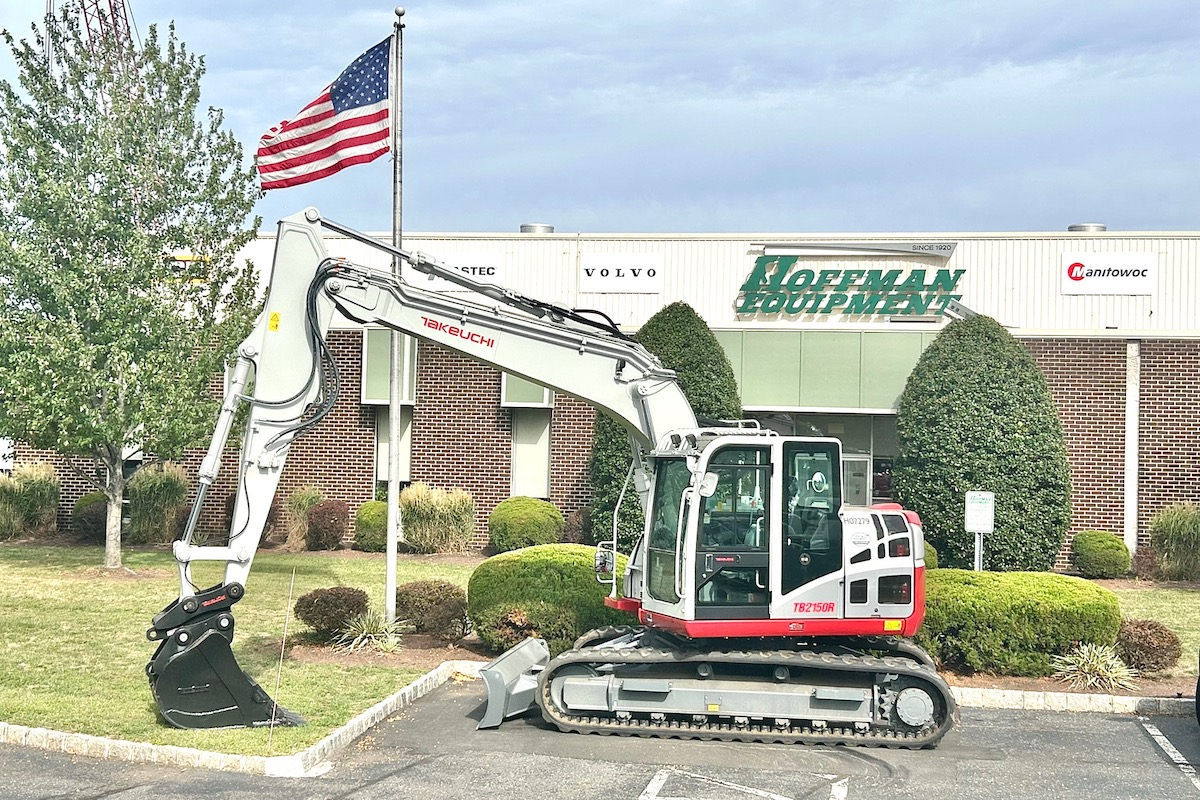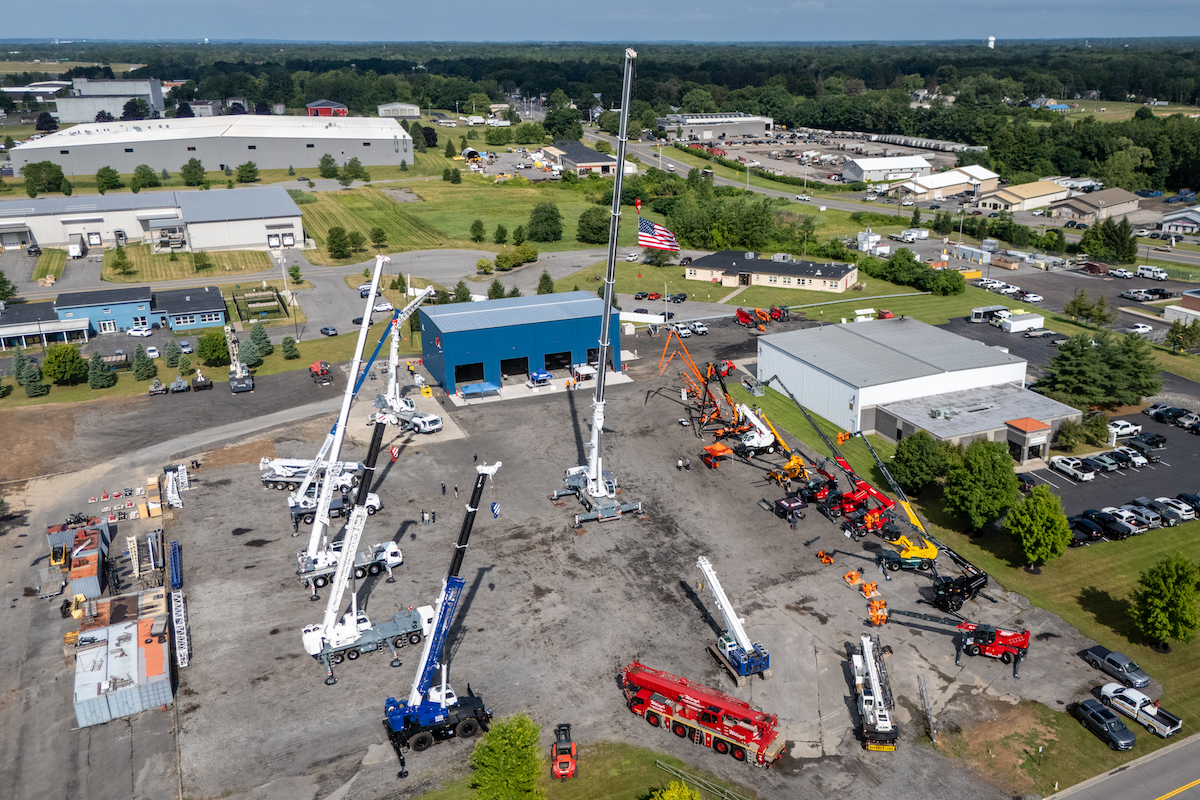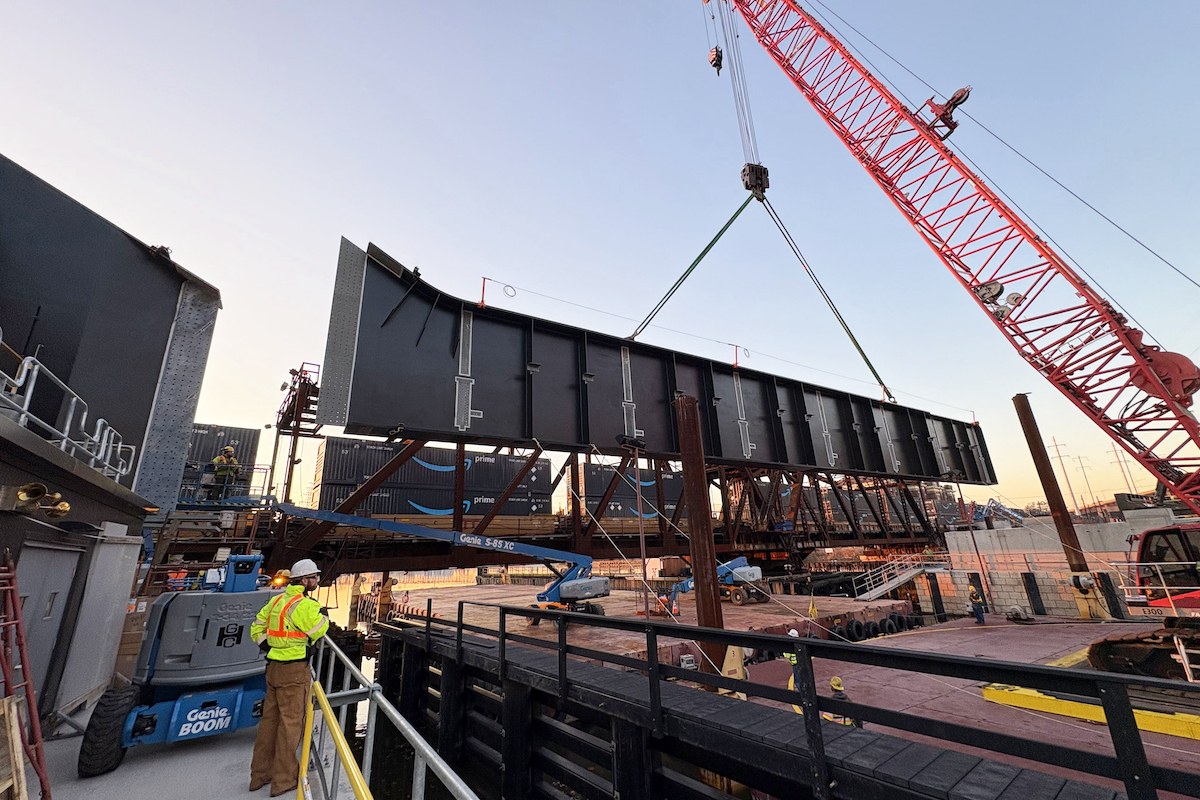Downtime is any contractor’s worst nightmare. Whether due to weather, lack of labor, or plain miscommunication, delays tear into timelines, budgets, and reputations.
Contractors can’t control everything on a project, but they can take proactive steps to prevent delays and increase efficiencies where possible. One key place: fuel supply.
Fuel is the lifeblood of any project. It’s also one of a project’s biggest costs. The nation’s construction industry runs on nearly 2 billion gallons of diesel annually, according to the U.S. Energy Information Administration. That’s among the more than half a million operators who depend on diesel when they climb into their cabs each week.
Contractors have traditionally relied on wet hosing from a local fuel distributor to keep engines running. With this process, distributors come to top off equipment on a scheduled or as-needed basis. While wet hosing has its benefits, it can also result in more traffic and personnel onsite, downtime due to missed or late deliveries, and increased costs.
That’s why storing fuel onsite with bulk fuel tanks is a game changer. With a large amount of fuel on hand — often 250 gallons or more — job sites are far less likely to run low or run out. There’s also no need for workers to leave the site to refuel, saving additional time and money. Buying fuel in bulk often costs less, too.

| Your local Trimble Construction Division dealer |
|---|
| SITECH Allegheny |
| SITECH Northeast |
Onsite bulk fuel storage isn’t necessarily a new concept, but many contractors still rely on dated round tanks for storing diesel. These tanks can be a big hindrance to job site efficiency. They’re also hard to relocate, often requiring a crane or sled. Plus, round tanks are more vulnerable to damage and potential theft — pumps and accessories are often stored outside the tank, exposed to weather damage and easier to steal.
With more modern cube tanks, many of those concerns can be eliminated, resulting in increased efficiency in terms of costs, labor, and downtime.
Effective monitoring only adds to the efficiency. Knowing how much (and how efficiently) fuel is used on a job site helps minimize spending while staying on schedule — the key to productivity and smoother operations.
Ready to take control of your fuel supply? Here are three tips to keep crews moving — on budget and on time — with modern onsite fuel storage.

| Your local Trimble Construction Division dealer |
|---|
| SITECH Allegheny |
| SITECH Northeast |
1. Monitor Fuel for Smarter Consumption
Running out of fuel means lost time and money for restocking and refueling. Actively monitoring diesel supply lets contractors smartly forecast future needs to ensure deliveries arrive right on schedule. The result? Maximum uptime.
Fuel monitoring systems use sensors inside each tank to give real-time, 24/7 insights into fuel levels and use. When a tank reaches a certain level, superintendents or operators receive a digital alert via email or a mobile app. The alerts can also go directly to a contractor’s fuel distributor, ensuring the site never runs out of fuel for added uptime and productivity.
Monitoring systems also generate reports to identify usage trends and prompt refill orders at the optimal time for continued operations — neither too soon nor too late. This delivers not only cost savings but increased productivity and peace of mind.
As these fuel usage insights build up over time, contractors can identify trends in when and how fuel is consumed onsite. That in turn lets them make more effective decisions about fuel allocations, spending, and delivery.

| Your local Trimble Construction Division dealer |
|---|
| SITECH Allegheny |
| SITECH Northeast |
Additionally, modern fuel monitoring systems protect against fuel loss. Employees can use PIN codes or RFID readers to dispense fuel, ensuring only authorized transactions are permitted. This adds a layer of security and transparency, showing companies how much fuel is dispensed when (and by whom) so they can flag any anomalies. Unusual activity — such as unexpected nighttime refueling or sudden spikes in usage — can trigger preset alarms and alerts, allowing for immediate action to investigate potential theft.
2. Keep Contaminant-Free and Compliant
Engine technologies constantly evolve to meet new environmental standards. Filtration systems in modern fuel tanks must do the same. Optimal fuel storage helps contractors achieve clean, contaminant-free fuel for longer usage time.
Modern tanks come with a double-walled design, preventing leaks while protecting the inner tank. Manufacturers also offer advanced filter packages to ensure fuel purity and smooth operation.
Diesel as delivered typically has a notably “dirty” ISO rating. That means contaminated fuel can go unnoticed until it’s too late — potentially resulting in lessened lubrication and damage to tanks. The cause? Usually, water that finds its way in through subpar maintenance. Operations can reduce leaks and other critical repairs by regularly inspecting and maintaining tanks, including regular filter cleanings. Remove any water accumulation found during scheduled inspections, too.

| Your local Trimble Construction Division dealer |
|---|
| SITECH Allegheny |
| SITECH Northeast |
Don’t forget: A near-empty tank can result in built-up sludge and blockages, especially in fall or winter. With smart fuel monitoring, contractors can ensure tanks avoid not only running out but running low.
In addition, a double-walled tank provides lower risk of leaks, helping job sites stay compliant.
3. Add DEF Storage
Since Tier IV engines require the addition of diesel exhaust fuel (DEF), adding onsite DEF storage to your fuel solution adds extra efficiency.
Storing and handling DEF is often an afterthought, but proper storage is crucial to its performance. Many contractors use IBC totes in metal cages for DEF storage, which are prone to punctures on rugged job sites. Plastic totes also don’t protect DEF from freezing or breaking down when exposed to ultraviolet rays. Using these totes for DEF storage often means lost — or unusable — DEF, grinding operations to a halt.

| Your local Trimble Construction Division dealer |
|---|
| SITECH Allegheny |
| SITECH Northeast |
Buying bulk DEF and storing it onsite in modern, double-walled containers offers similar benefits to onsite bulk fuel storage — price breaks, better protection from the elements, and on-demand availability. Turnkey DEF storage solutions like the DEFCube 550 from Western Global can be used individually or in combination with diesel storage tanks, offering flexibility and efficiency for large-scale projects and fleets.
In the construction industry, fuel should always be a strategic asset, never a liability. Bulk fuel storage enables contractors to become less dependent on frequent deliveries (and the associated interruptions), enabling more constant and consistent operations with little risk of running out of fuel.
Modern, onsite fuel storage additionally delivers more efficient fuel consumption and enhanced security against contamination and theft. And the streamlined design of cubed models can be forklifted onto a job site and easily connected to onsite equipment. That design also lets operators quickly move a tank around a site as needed with common job site equipment — no need for specialized equipment.
By investing in a smart solution now, contractors can reap long-term efficiency gains for their business. Consider these solutions and best practices to stay on schedule and allocate more accurately, transforming job site fuel management from a logistical problem to a competitive advantage.

| Your local Trimble Construction Division dealer |
|---|
| SITECH Allegheny |
| SITECH Northeast |
Ben Inkrott serves as Director of Product Management at Western Global, where he focuses on developing innovative solutions that meet the evolving needs of the construction industry.

